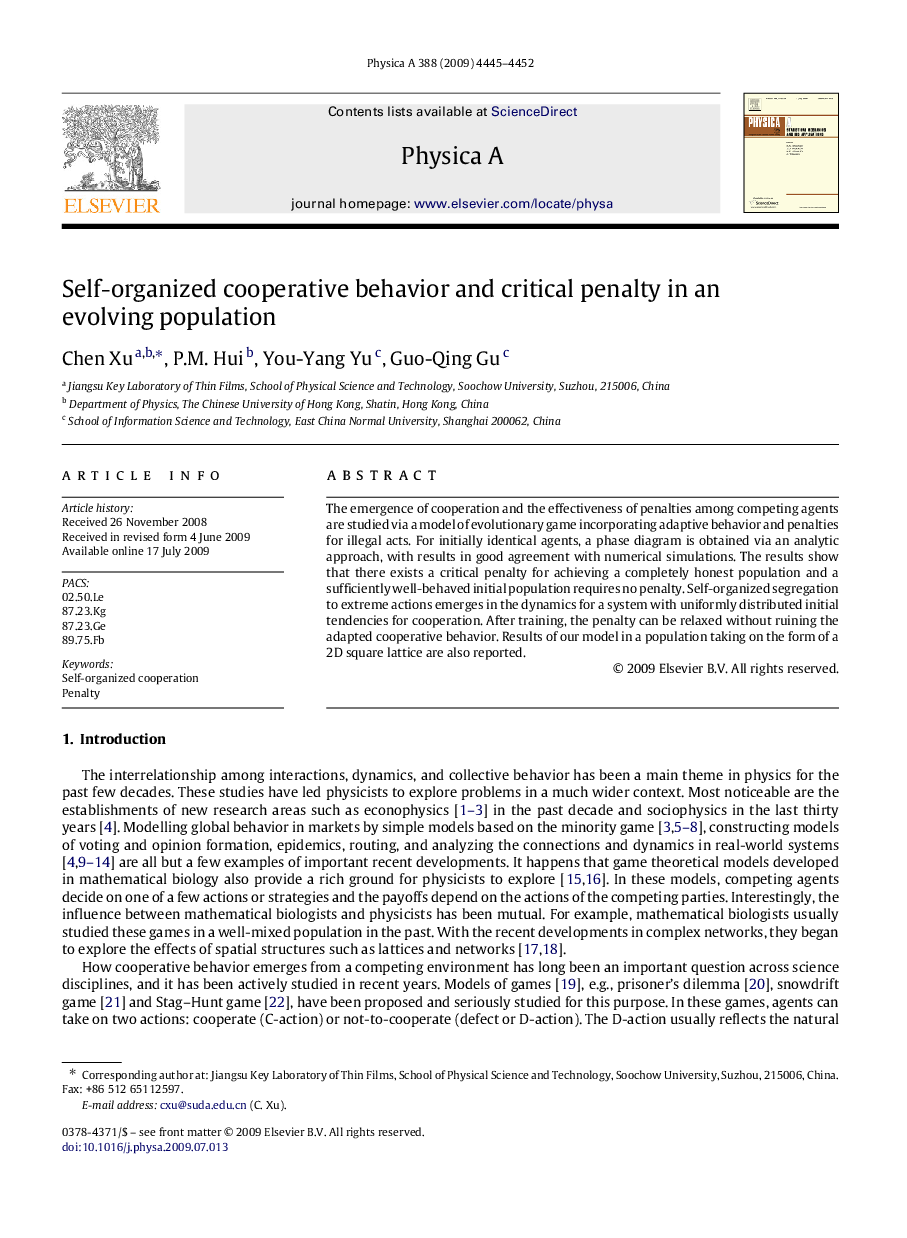| Article ID | Journal | Published Year | Pages | File Type |
|---|---|---|---|---|
| 976282 | Physica A: Statistical Mechanics and its Applications | 2009 | 8 Pages |
The emergence of cooperation and the effectiveness of penalties among competing agents are studied via a model of evolutionary game incorporating adaptive behavior and penalties for illegal acts. For initially identical agents, a phase diagram is obtained via an analytic approach, with results in good agreement with numerical simulations. The results show that there exists a critical penalty for achieving a completely honest population and a sufficiently well-behaved initial population requires no penalty. Self-organized segregation to extreme actions emerges in the dynamics for a system with uniformly distributed initial tendencies for cooperation. After training, the penalty can be relaxed without ruining the adapted cooperative behavior. Results of our model in a population taking on the form of a 2D square lattice are also reported.
